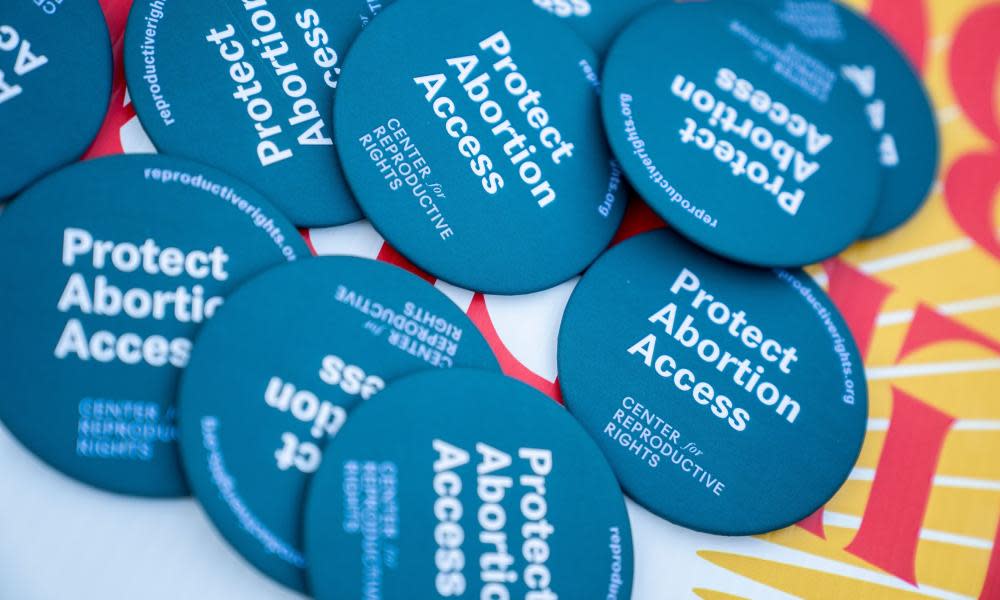Five takeaways from US supreme court’s Mississippi abortion rights case hearing

The US supreme court heard oral arguments on Wednesday in the most significant abortion rights case since the landmark 1973 supreme court ruling in Roe v Wade which effectively legalized abortion in the US.
Related: A ‘fundamental’ right: a timeline of US abortion rights since Roe v Wade
The case, Dobbs v Jackson Women’s Health Organization, pits the leadership of Mississippi against the state’s last abortion clinic. The state seeks to ban abortion after 15 weeks gestation and asks the highest court to overturn Roe.
Here are five key takeaways from the crucial court session.
Conservative justices signal support for Mississippi abortion restrictions
Some conservative justices signaled a readiness to back Mississippi and threaten Roe. Justice Brett Kavanaugh appeared to challenge the principle of precedent and listed numerous landmark cases where the court overturned previous decisions, such as Brown v Board of Education on school segregation.
Justice Amy Coney Barrett, nominated by Donald Trump like Kavanaugh, suggested adoption services could nullify the need for abortion, by removing the burdens of “forced parenting”.
Veteran justice Clarence Thomas challenged the notion that there is a constitutional right to abortion, saying that it is not clearly laid out the way the second amendment is on “the right to bear arms”.
Conservatives question fetal viability line, unclear on overturning Roe
Chief justice John Roberts asked what the effects would be of moving the Roe limit [allowing termination until a fetus is viable outside the womb, around 24 weeks] back earlier in the pregnancy.
“If you think that the issue is one of choice ... viability … doesn’t have anything to do with choice. If it really is an issue about choice, why is 15 weeks [Mississippi’s limit] not enough time?” he said.
Justice Samuel Alito questioned whether fetal viability is even an appropriate line for the court to have drawn.
“If a woman wants to be free of the burdens of pregnancy, that interest does not disappear the moment the viability line is crossed,” he said.
Liberals defend precedent, test religious motive
Justice Elena Kagan said a major goal of precedent is “to prevent people from thinking that this court is a political institution that will go back and forth depending on what part of the public yells the loudest ... usually, there needs to be a strong justification in a case like this, beyond the fact that you think the case is wrong.”
Justice Sonia Sotomayor, nominated by Barack Obama like Kagan, signaled she believes Mississippi’s motive in restricting abortion is religious. She feared a further threat to precedents that protect rights to birth control access and same-sex marriages.
And Justice Stephen Breyer quoted from the 1992 ruling in Planned Parenthood v Casey which reaffirmed Roe.
“To overrule under fire in the absence of the most compelling reason to re-examine a watershed decision would subvert the court’s legitimacy beyond any serious question,” he said.
“What exactly is new here?”
Liberal justices asked what is novel about the Mississippi case when so many others have not changed precedent.
‘Not much has changed since Roe and Casey,” Kagan said. “The reason people agree or not are the same reasons they’ve always had … aren’t we in the exact same place, except that we’ve had 50 years of women relying on this right?”
Sotomayor chimed: “Fifteen justices over 30 years have reaffirmed that basic viability line … 15, of varying political background.”
Liberals warn public trust in the institution is shaky
Sotomayor suggested reversing Roe v Wade could hit public confidence in the court as a non-partisan body – after Trump’s three traditionalist nominees (Neil Gorsuch, Kavanaugh and Coney Barrett) tilted the majority sharply right.
She said to Scott Stewart, Mississippi’s solicitor general: “The sponsors of this bill ... in Mississippi are saying ‘We’re doing this because we have new justices on the supreme court’. Will this institution survive the stench that this creates in the public perception that the constitution and its reading are just political acts?”
She continued: “If people believe it’s all political … how will the court survive?”
Breyer added that the risk in a “super case” like this is that the American public will regard justices as “just politicians.”
“That’s what kills us,” he said.

 Yahoo Movies
Yahoo Movies 
